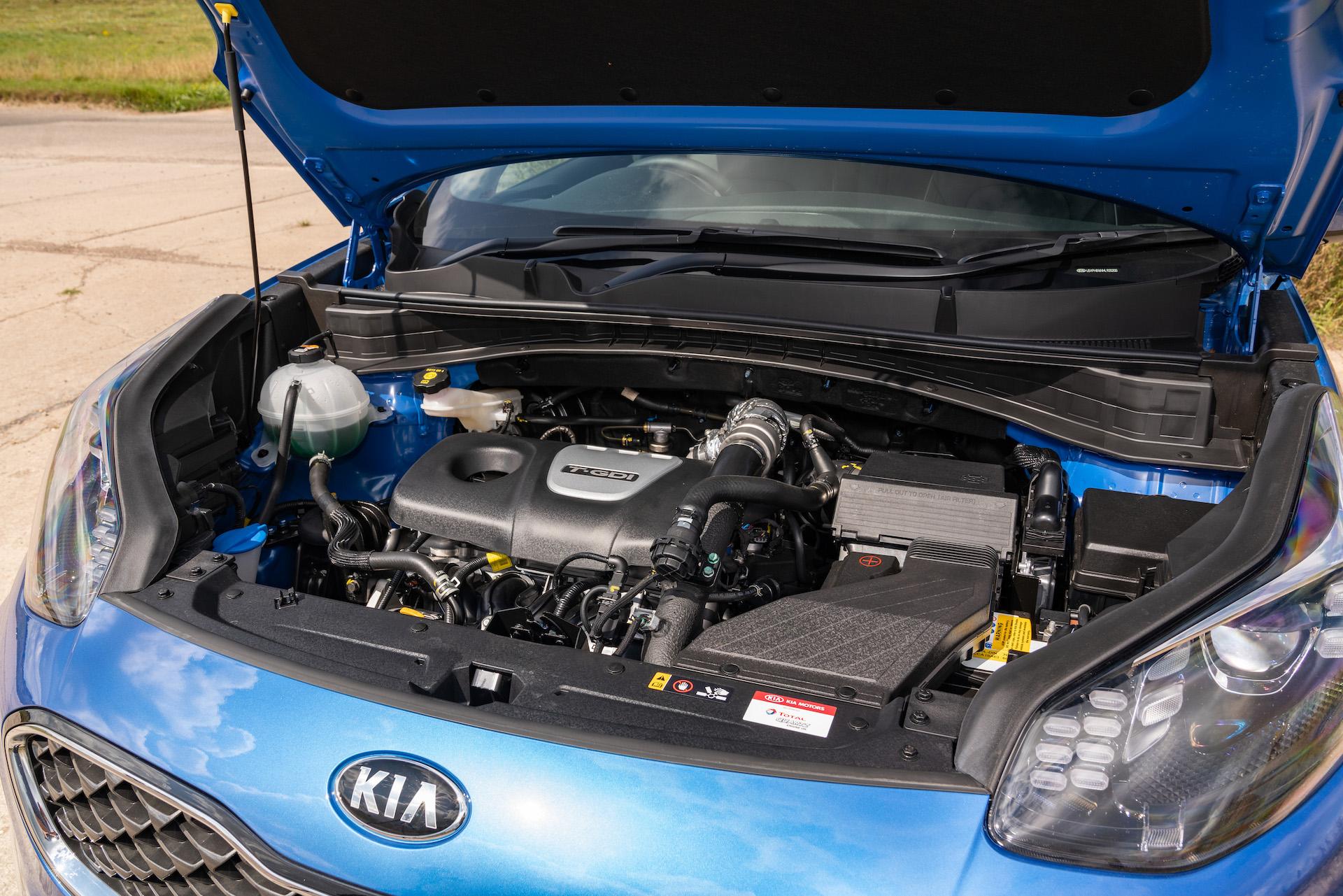You can have your Kia Sportage with a range of two petrol engines, two diesel units and as a mild-hybrid which pairs a diesel engine with a compact electric motor to improve performance and fuel economy.
If you do lots of driving in town, the most affordable 1.6-litre petrol model with 130hp might be worth a look. It feels pretty sluggish, but Kia claims it’ll return 39.8mpg. You’ll probably see a figure closer to 35mpg in normal driving conditions, though.
A much better option - especially if you do a mix of city and motorway driving - is the more powerful 174hp turbocharged 1.6-litre petrol. It accelerates from 0-60mph almost two seconds faster than the 130hp model and feels much less strained when you put your foot down to overtake slow-moving traffic. It won’t cost significantly more to run, either - Kia claims it’ll return 36.2mpg compared with the 130hp version’s 39.8mpg
If you do lots of long trips, one of the diesel engines will be a better bet. The entry-level 114hp 1.6-litre model is pretty sluggish - it takes more than 11 seconds to reach 60mph from rest - but manages to return decent fuel economy. You can expect to see close to 55mpg compared with Kia’s claimed 57.8mpg figure.
There’s also a more powerful 134hp 1.6-litre diesel that feels faster and returns identical claimed fuel economy. It costs a little more to buy but feels much quicker than the rather weedy 114hp unit. Both 1.6-litre diesel engines are impressively quiet when you’re cruising along.
Then there’s a mild hybrid model that couples a 2.0-litre diesel engine with a small electric motor. This 182hp Sportage is your best bet if you plan to regularly tow heavy trailers but it can’t run on purely electric mode at slow speeds like other conventional hybrids. Despite this, it’ll still return around 45mpg in normal driving conditions - not too shabby for a relatively powerful, high-riding family SUV.
The standard six-speed manual gearbox you get in all but the top-spec hybrid model is pretty easy to use - even in stop-start traffic - but the optional seven-speed automatic makes even lighter work of long rush-hour commutes.
You can get the more powerful 1.6-litre petrol and diesel models with four-wheel drive, but, unless you’re absolutely certain you’ll take your Kia Sportage off-road, it isn’t worth paying for. Even if you do, you’ll find the likes of the Land Rover Discovery Sport significantly better at dealing with muddy fields and rutted farm tracks than the resolutely urbanite Kia.
 The Kia Sportage is reasonably easy to drive in town - despite its fairly large size. You get a decent view out and the relatively light controls mean you won’t feel tired having just squeezed into a tight parking space.
The Kia Sportage is reasonably easy to drive in town - despite its fairly large size. You get a decent view out and the relatively light controls mean you won’t feel tired having just squeezed into a tight parking space.
Speaking of parking, you get a reversing camera as standard across the range while ‘2’ versions come with parking sensors and ‘3’ models and above feature a neat 360-degree surround-view camera system. It’s not all good news, however - you can’t get the Kia Sportage with a self-parking system to steer you into parallel and bay spaces like the VW Tiguan and the steering’s a little heavier than in some other family SUVs.
Once you’ve extricated the Kia Sportage from a car park, you’ll find it irons out big bumps reasonably well around town, but it can’t deal with uneven road surfaces as comfortably as the Peugeot 3008.
There isn’t much to complain about when you leave the city and head out onto a twisty back road. Sure, the Sportage doesn’t quite live up to its sporty name - a Mazda CX-5 is more fun to drive and has steering that inspires a little more confidence in tight turns - but it doesn’t lean too much in sharp corners so your passengers won’t be reaching for the sick-bags on meandering country drives.
On the motorway, the Kia Sportage does a reasonable job of muffling annoying wind and tyre noise and all models get cruise control as standard so it’s pretty relaxing to drive for long periods. It’s especially stress-free if you go for a GT-Line S model - these get adaptive cruise control which brakes and accelerates for you to help maintain a safe distance to other cars.
Sadly, you don’t get a lane-keeping assist on entry-level ‘1’ models and automatic emergency braking to help prevent avoidable collisions is reserved for Edition 25, ‘4’ and GT-Line S cars.


